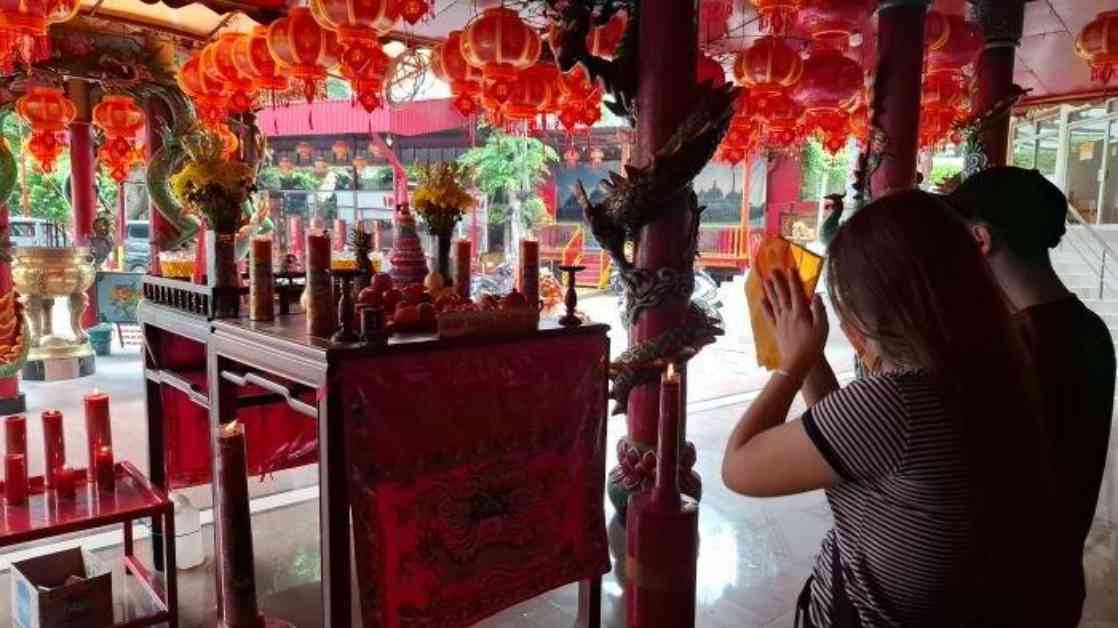Amurva Bhumi Temple Makes Shift in Worship Schedule for Lunar New Year’s Eve
The Amurva Bhumi Temple in Setiabudi, South Jakarta, was abuzz with worshippers going about their usual Sunday activities on January 26, 2025, despite the upcoming celebration of the Lunar New Year falling on Wednesday, January 29, 2025.
Preparations for Lunar New Year Festivities
As the clock struck 3:00 PM, a diverse group of worshippers, some alone and others with their families, were seen engaging in prayer at the temple. Irawati, a 57-year-old representative of the temple’s management, revealed that preparations for the upcoming Lunar New Year had been underway for several days. One significant ritual involved the bathing of statues of deities, which had taken place on Thursday, January 23, 2025.
Changes in Worship Schedule
Irawati further explained that there would be a shift in the temple’s worship schedule on Tuesday, January 28, 2025, leading up to the Lunar New Year. While regular worship services typically took place at 7:00 PM, the service on the eve of the Lunar New Year would be held at 9:00 PM. This adjustment was made to accommodate worshippers who traditionally gather with their families for a meal before attending the service.
Anticipation for the Lunar New Year
According to Irawati, a surge in worshippers is expected at midnight on Wednesday as many devotees choose to welcome the Lunar New Year at that precise moment. The temple is likely to be bustling with worshippers offering prayers and participating in various ceremonies to mark the arrival of the Lunar New Year.
Significance of Lunar New Year Celebrations
The Lunar New Year, also known as Chinese New Year or Imlek, is a time of great cultural and traditional significance. It is a celebration that spans thousands of years and is marked by various customs and practices aimed at ushering in prosperity and good fortune for the year ahead. The festivities hold deep-rooted meaning for worshippers at the Amurva Bhumi Temple and are observed with reverence and joy.
In conclusion, the Amurva Bhumi Temple’s adaptation of its worship schedule in anticipation of the Lunar New Year reflects the temple’s commitment to accommodating the spiritual needs of its worshippers while honoring age-old traditions. As devotees eagerly await the arrival of the Lunar New Year, the temple stands as a beacon of faith and community, bringing people together in prayer and celebration.






















